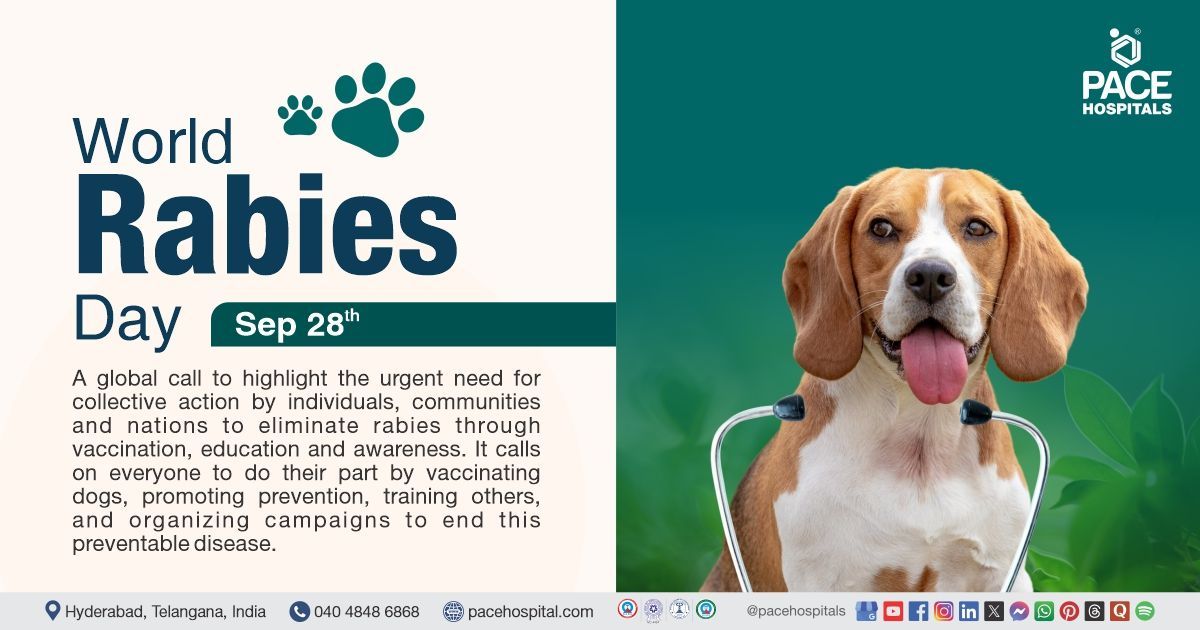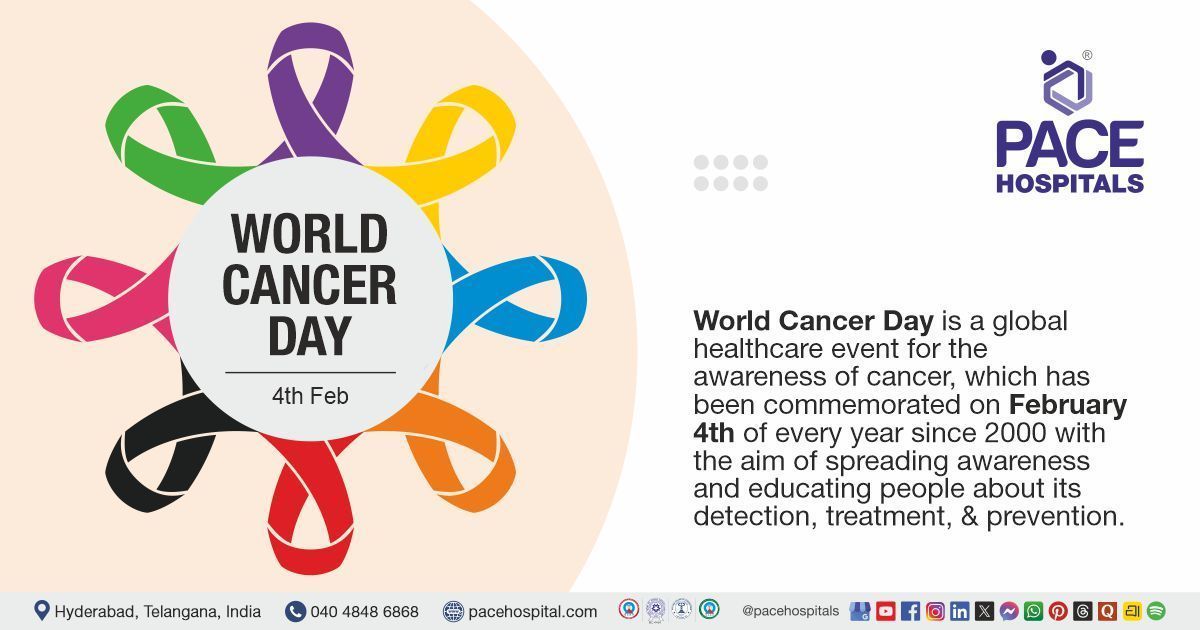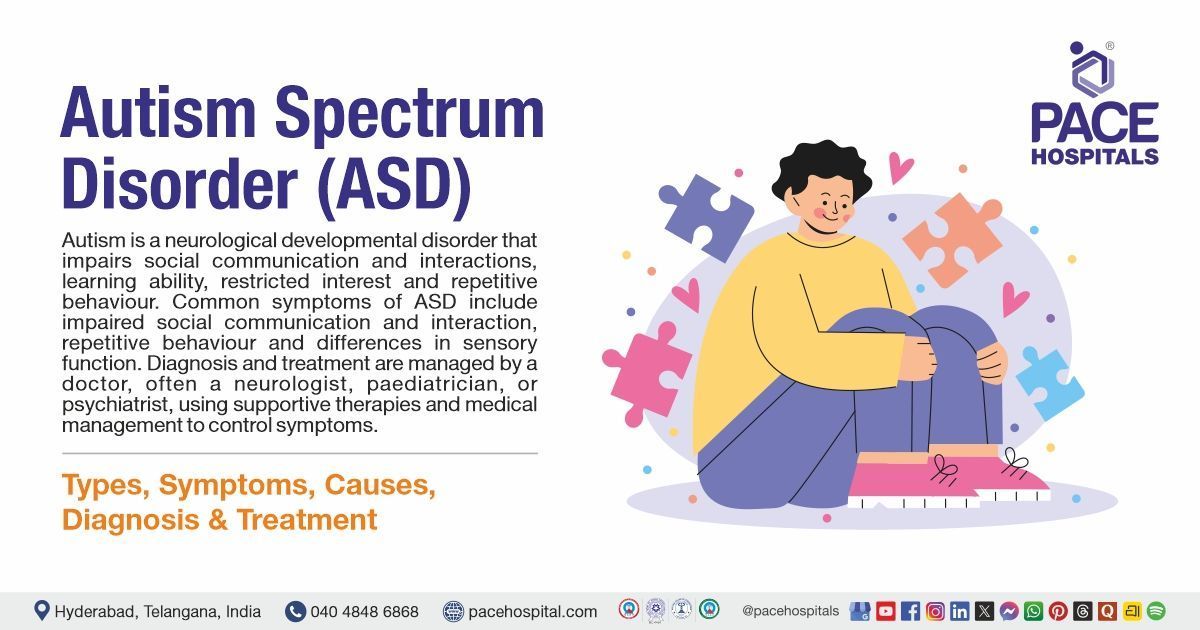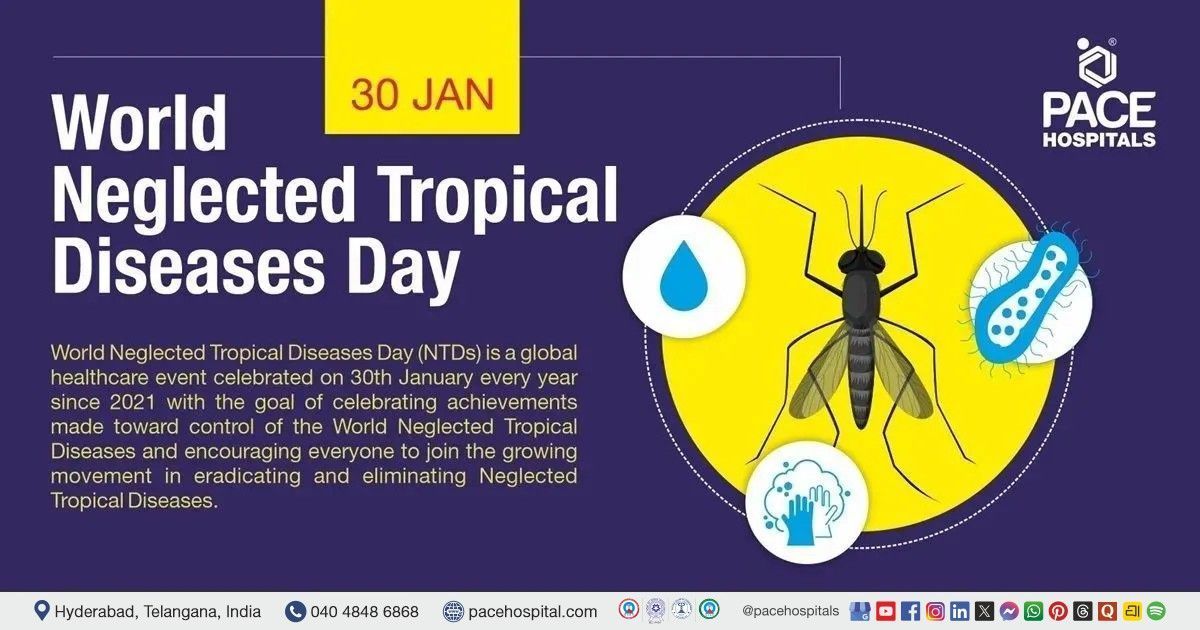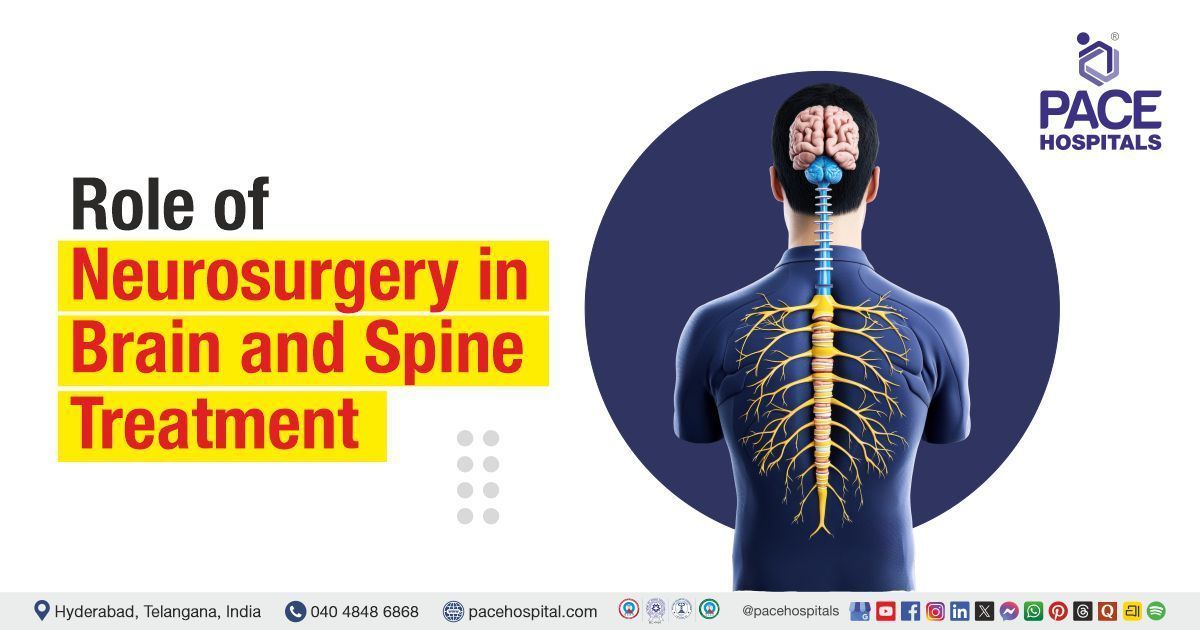World Rabies Day, 28 September 2025 - Necessity, Theme, First aid
PACE Hospitals
The World Rabies Day is a global healthcare event observed on the 28th of September every year since 2007, established by the Global Alliance for Rabies Control (GARC). During this day, various local and global communities gather to advocate awareness of rabies disease and discuss the various means (such as vaccination to pets, etc.) to avoid it.
One of the oldest viral diseases - rabies can be prevented by vaccine. This zoonotic disease spreads through the bite or scratch of a rabid animal and affects the central nervous system. Rabies can prove to be 100% fatal if the clinical symptoms tend to appear.
Although rabies can affect both domestic and wild animals, unvaccinated domestic dogs comprise about 99% of rabies cases. Children between the age of 5–14 years are the most common victims.
Importance of World Rabies Day
Being one of the most neglected tropical diseases – the victims of rabies are predominantly the poor, marginalised, and vulnerable populations. Despite the invention and availability of safe and effective immunoglobulins and vaccines, at times, their accessibility is arguable.
The human deaths due to dog-mediated rabies could be estimated at least 59,000 globally per year, of which India accounts for 36% and 65% of the global deaths and Southeast Asian region deaths, respectively. At least 6644 cases of clinical suspicion and deaths due to rabies can be traced between 2012 and 2022 in India. The sudden spike of rabies cases of rabies is a major public health concern.
The GARC is an establishment recognised by the World Health Organisation (WHO), celebrated the first World Rabies Day on the 28th of September in 2007, paying homage to the French scientist Louis Pasteur, who died on September 28, 1895. These healthcare days are usually denominated in such bleak situations to pour hope into the people through inculcating the spirit of awareness and thus mobilising supportive action on both the international and national stages.

World Rabies Day 2025 Theme
This year, 2025, the World Rabies Day theme is "Act Now: You, Me, Community". This theme emphasizes the urgent need for collective action by individuals, communities and nations to eliminate rabies through vaccination, education and awareness. It calls on everyone to do their part by vaccinating dogs, promoting prevention, training others, and organizing campaigns to end this preventable disease.
Year by year, the past themes for World Rabies Day are:
- World Rabies Day 2024 Theme- Breaking Rabies Boundaries
- World Rabies Day 2023 Theme - All for 1, One Health for All!
- World Rabies Day 2022 Theme - Rabies: One Health, Zero Deaths
- World Rabies Day 2021 Theme - Rabies: Facts, not Fear
- World Rabies Day 2020 Theme - End rabies: collaborate and vaccinate
- World Rabies Day 2019 Theme - Rabies: Vaccinate to eliminate
- World Rabies Day 2018 Theme - Rabies: Share the message. Save a life
Zero by 30: Ending deaths from dog-mediated rabies by 2030
The WHO shared the goal of ending deaths from dog-mediated rabies by 2030. While we have all the necessary medicines, vaccines, tools, and technologies to stop rabies-related deaths, we still are not able to prevent the victims from certain deaths, especially from dog-mediated rabies.
The WHO shared its prime activity of reducing deaths from dog-mediated rabies, which works through the improvement of various mechanisms necessary for the surveillance of other zoonotic diseases apart from expanding the accessibility to health care.
First aid for rabies disease
There are two types of rabies.
- Furious rabies: Also called encephalitic rabies, it occurs in 80% of human cases, and the patients present hydrophobia (fear of water).
- Paralytic rabies: Also called dumb rabies, which causes paralysis primarily.
In case of a rabid dog bite or any potential exposure to rabies, the following first aid tips or post-exposure prophylaxis (PEP) can be initiated as an emergency response. These steps restrict the entry of the virus into the central nervous system, thus invariably delaying its progression. PEP steps are:
- Wash the wound extensively with soap, water for at least 15 minutes.
- In case of bleeding, pressure must be applied. It should restrict the blood flow.
- Local wound treatment as soon as possible after a rabies exposure.
- The information about the animal must be obtained. If it is a pet, the vaccination history can be obtained.
- The patient must be moved to the hospital at once.
Of the many ailments a person can die from, perhaps the cruelest is hydrophobia, where water, which is supposed to give life, becomes the cause of death. Even a cancer patient is able to entertain some hope, but a rabies patient has none.
- Q&A by VIKAS Swaroop
Share on
Request an appointment
Fill in the appointment form or call us instantly to book a confirmed appointment with our super specialist at 04048486868

